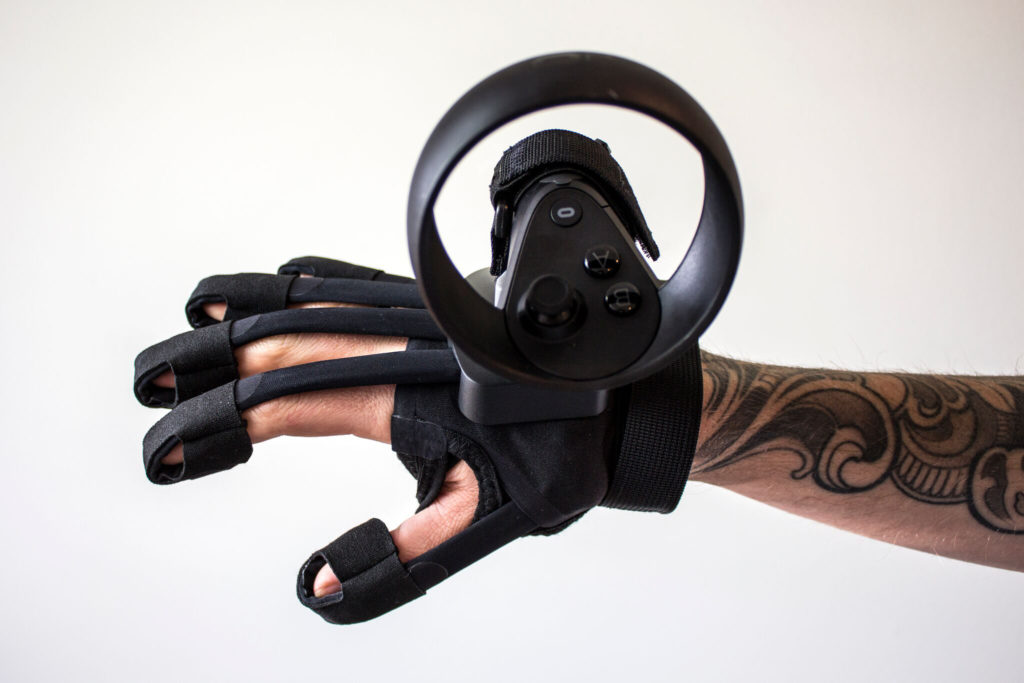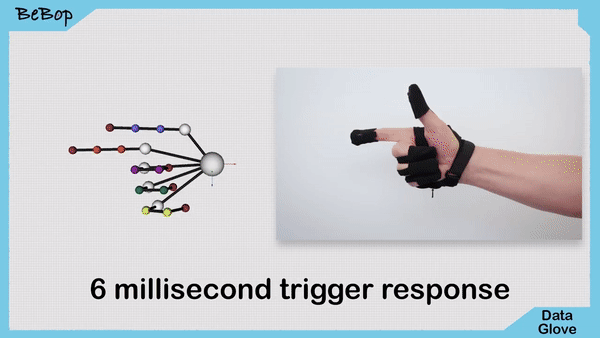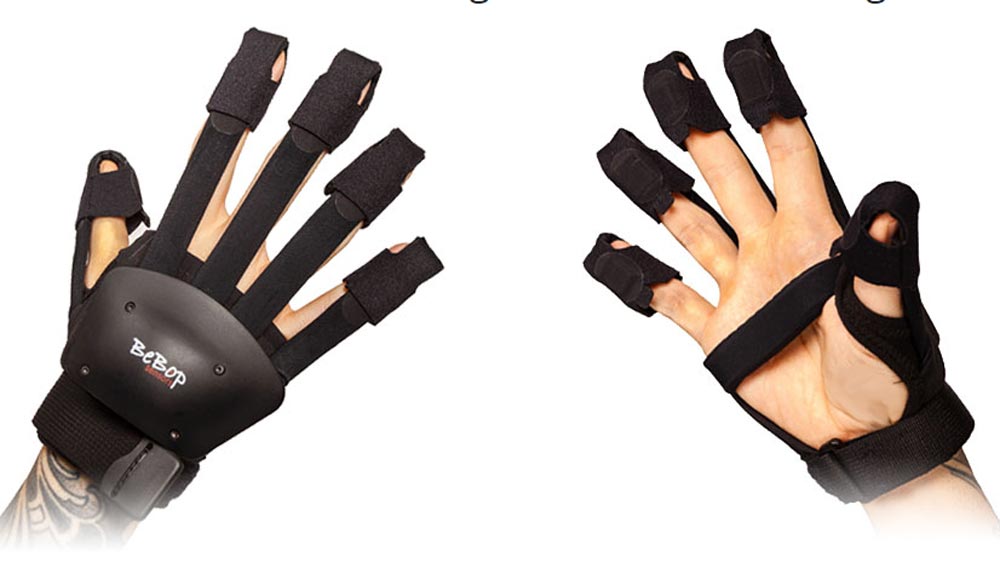The glove-like accessory allows standalone VR users to feel virtual objects.
In January of 2018, BeBop Sensors debuted its Forte Data Glove at the annual Consumer Electronics Showcase in Las Vegas, Nevada, during which the company showcased its “smart fabric” technology simuating the sensation of touch while in a virtual space; put simply, the high-tech gloves allow users to “feel” virtual objects while immersed in a VR experience.
Since that debut, BeBop Sensors has been working non-stop on its enterprise-friendly haptic technology. The latest iteration of its one-size-fits-all Forte Data Glove can now be combined with the Oculus Quest controllers, integrating BeBop’s hand tracking technology with the Quest’s 3D tracking. Together, these two tech systems — along with BeBop Sensors SDK, allow you to experience force, location, size, weight, bending, twisting, and various other presences across any size, resolution, and geometry in VR.
According to Bebop Sensors, the latency between your real-world actions and what happens in VR is virtually unnoticeable. When you move your fingers or reach out to grab an object, the response time between the real-world and the virtual world is just under 6 milliseconds, all thanks to fast sensor speeds clocking in at 160Hz and six full-range haptic actuators.
Splash a lake in VR and you’ll feel the water on your fingertips as soon as they touch the surface; strum a guitar and the notes will instantly ring out.

For the sake of convenience, the gloves themselves fit into a small bag and can be connected to a system via Bluetooth or USB in a matter of minutes. Featuring a unique open palm design, the gloves are breathable and can be cleaned more easily than other haptic gloves. The internal sensors are also waterproof, protecting them from sweaty palms developed during intense VR sessions; an especially useful addition considering the device’s 15-hour battery life.
BeBop Sensors’ Forte Data Gloves could be a potential game-changer for multiple industries within the immersive technology sector, from enterprise and entertainment, to eSports and social VR. Imagine being able to high-five someone in RecRoom and actually feel their hand on yours, or the vibrations of a bottle as you break it over the head of an enemy in SUPERHOT VR.
However, the main purpose of the Forte Data Glove, according to BeBop Sensors, is to reshape how companies approach enterprise training. As more and more industries continue to explore VR/AR technology in workforce training – the expectation of what learners will experience in the virtual world is growing.

CLO’s and training managers have seen the benefits of training through VR and AR. With the help of immersive technology, employees are not only retaining more information in shorter periods of time, but they’re also making less costly mistakes, both minimal and life-threatening. The more realistic the simulation, the more effective the training.
Those are big wins for everyone involved.
Beyond some basic vibrating, the Quest’s Touch controllers, and all consumer-ready VR controllers for that matter, still lack a realistic sense of touch feedback. BeBop Sensors Forte Data Glove could actually bring that missing layer to VR.

The gloves are already being used by multiple Fortune 500 customers for training, medical trials & rehabilitation, robot & drone control, VR CAD design & review, and much more.
BeBop Sensors products have won the Red Herring Award, the TIME Magazine Best Inventions Award, the IDTechEx Wearable Award, the Frost & Sullivan North American Technology Innovation Award, and the Gartner Cool Vendor Award.
Feature Image Credit: BeBop Sensors
The post Smart Fabric Technology Brings Touch Haptics To The Oculus Quest appeared first on VRScout.
from VRScout https://ift.tt/32Trvk3
via IFTTT
No comments:
Post a Comment